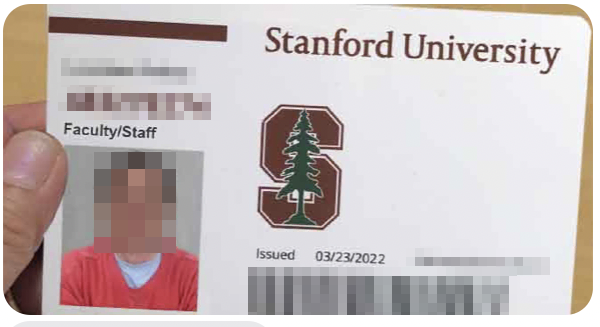December 8, 2022
Beware of a campaign targeting students with fraudulent job opportunities. Refer to this UIT news article for more detailed information.
What does the scam look like?
- The initial email is either purportedly from or references a Stanford faculty member.
- The email content describes a part-time job opportunity as a research assistant, intern, tutor, software developer, etc.
- The job comes with an attractive weekly salary and often can be done remotely.
- Attackers attempt early on to move the discussion with the target to a non-Stanford platform (text messaging, non-Stanford email, or a phone call).
- The target is asked to fill out some basic information in a form and then is given a list of job tasks. After some tasks have been completed, the attacker expresses satisfaction.
- Attackers send the target a digital image of a check with instructions to deposit in their account to cover initial salary plus buying startup items such as office supplies, laptop computer or training.
- Attackers later ask for a sizable portion of the startup money to be transferred back via Zelle, PayPal, Venmo, etc., allegedly to cover one or more of those aspects (office supplies/computer/training).
- If challenged, scammers may offer "proof" of the faculty member's identity, such as images of a forged Stanford ID card.
- The target then transfers money to the attackers via Zelle, PayPal, Venmo, etc., only to find out some time later that the startup check is fraudulent and has bounced. Funds transferred from the target’s account are often not recoverable by the bank.
View examples of the scam components below:
Initial offer:
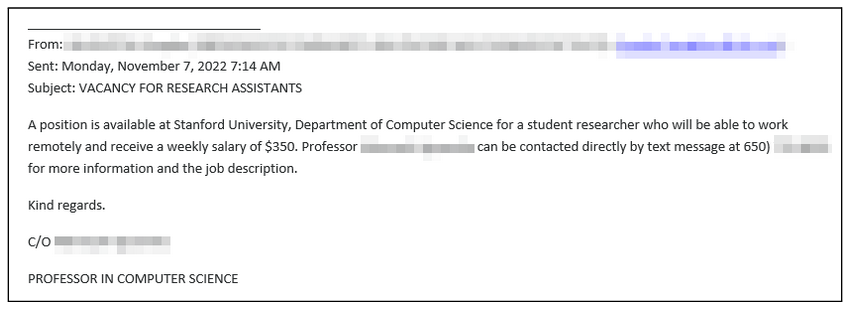
Application form:
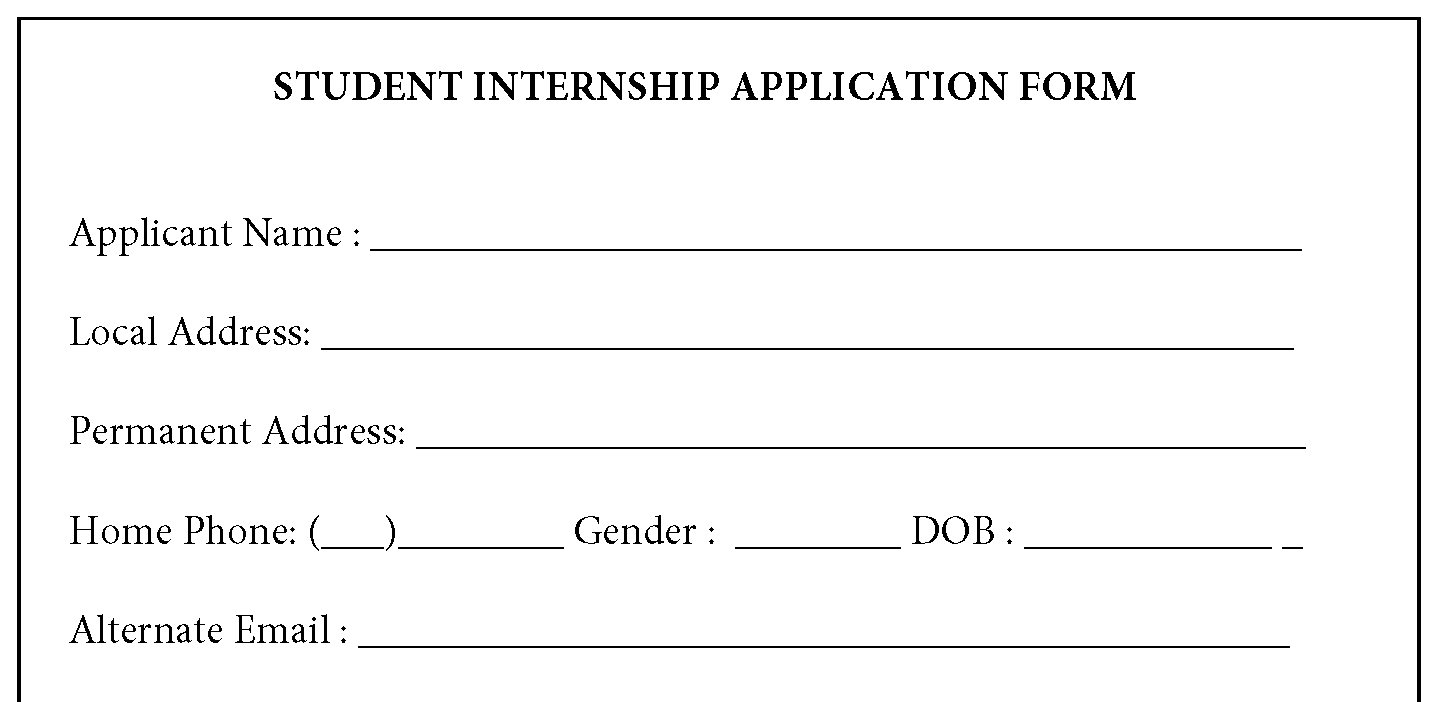
Switch Away from Stanford Email:
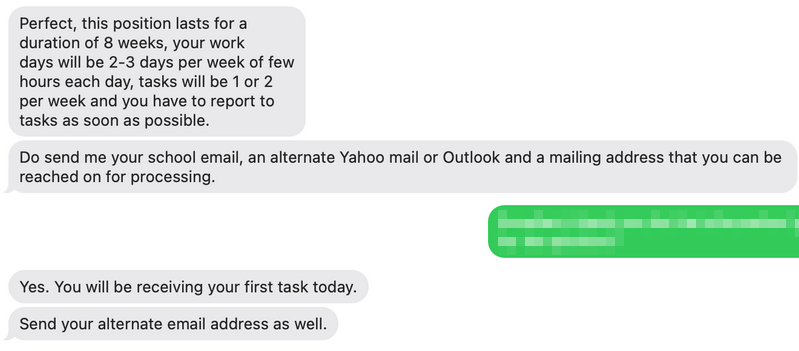
First task:

Second task:

Deposit Fraudulent Paycheck:
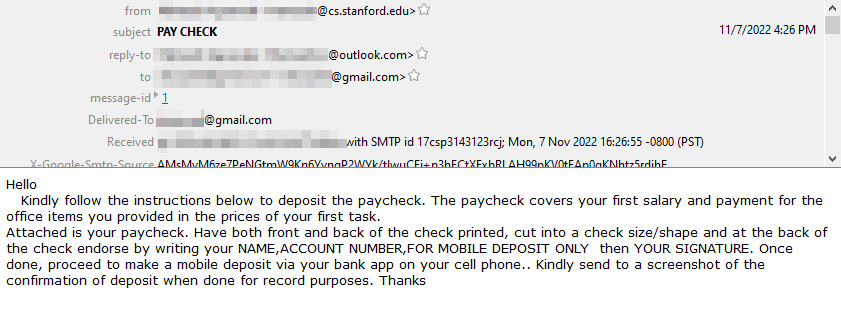
Fraudulent paycheck:
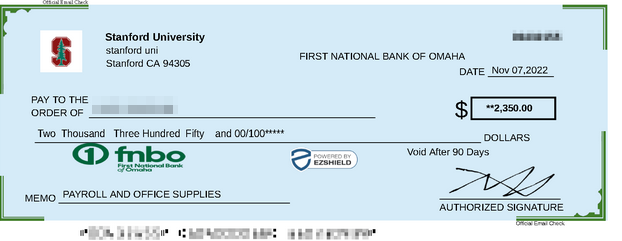
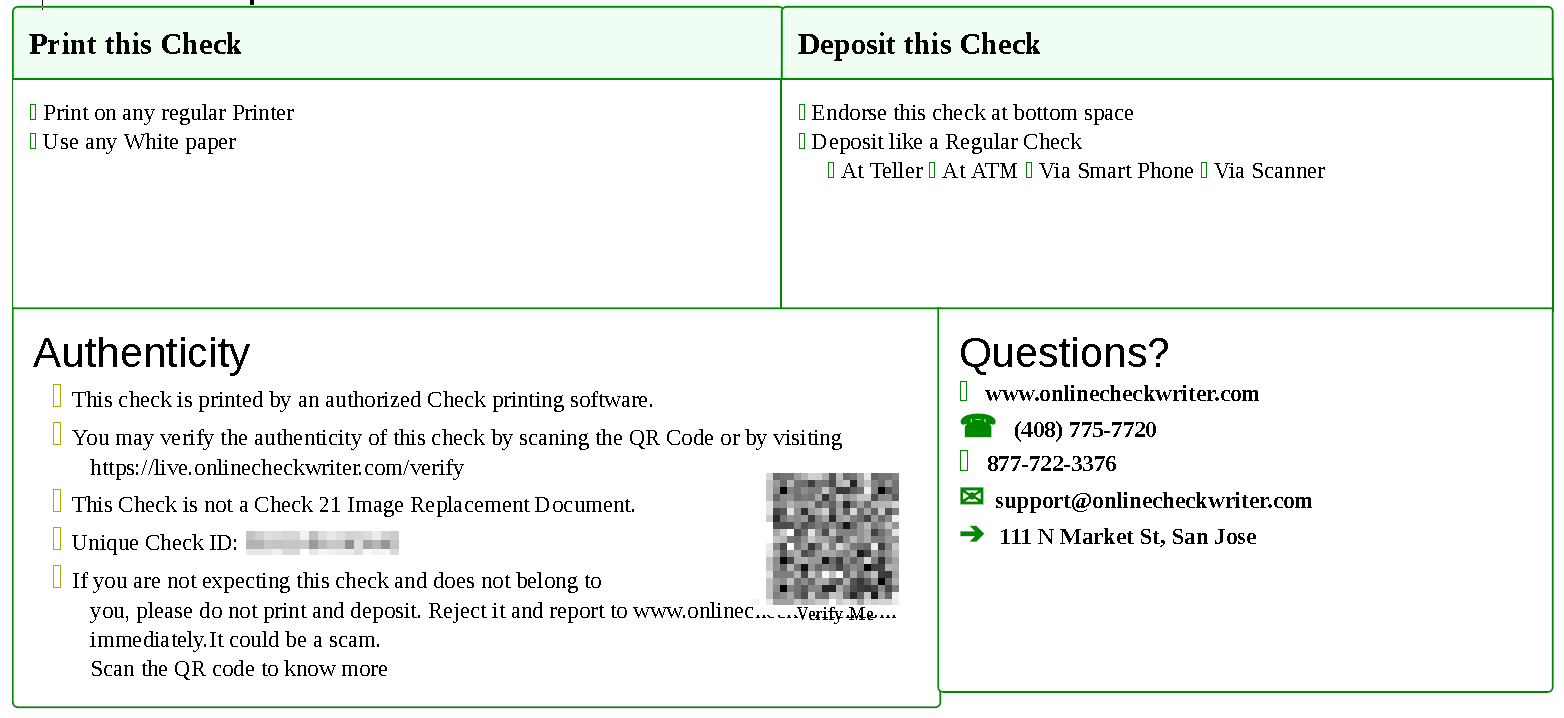
Request to transfer some paycheck funds back for office supplies:

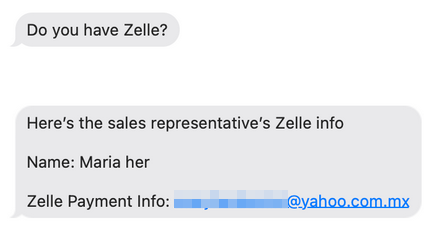
Fictitious ID to “verify” identity:
